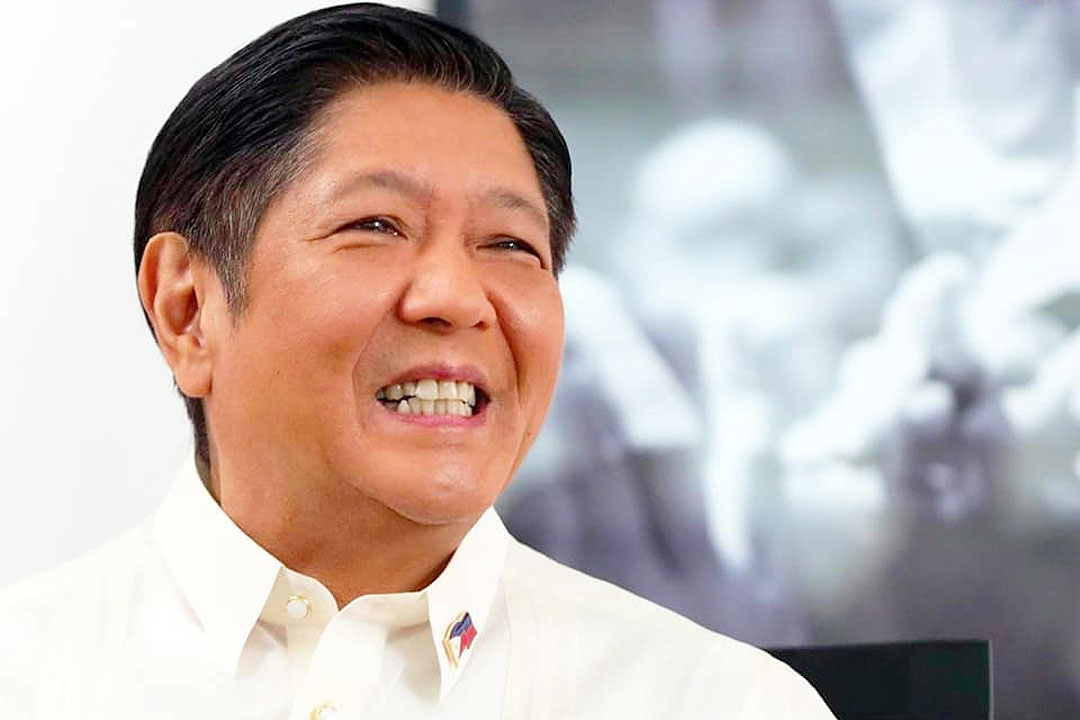Marcos takes power 36 years after father’s popular ouster

By Kyle Aristophere T. Atienza and Alyssa Nicole O. Tan, Reporters
FERDINAND R. MARCOS, JR. took his oath as Philippine president on Thursday, completing a remarkable comeback for a political dynasty that was ousted by a popular uprising in 1986.
In a speech that echoed his unity campaign slogan, Mr. Marcos, 64, vowed to fulfill his promises to Filipinos without any excuses, including giving them better lives. He urged the people to work with his government, adding that “we will go very far under my watch.“
“You will not be disappointed, so do not be afraid,” Mr. Marcos, better known as Bongbong, said at his inauguration ceremony, with his sister Imee, a senator, and 92-year-old mother Imelda seated close by.
Mr. Marcos won the May 9 election by a landslide and clinched a comeback for his family, which is still facing court cases involving ill-gotten wealth and unpaid taxes.
He thanked Filipinos for what he called “the biggest electoral mandate in the history of Philippine democracy.”
Mr. Marcos praised his father’s rule but said his own presidency was not about the past, but a better future.
“I once knew a man who saw what little had been achieved since independence… But he got it done sometimes with the needed support, sometimes without,” he said in his 30-minute speech.
“So will it be with his son. You will get no excuses from me,” he said. “No looking back in anger or nostalgia.”
Ferdinand E. Marcos ruled the Philippines from 1965 for more than two decades, almost half of it under martial rule, until his overthrow by a “people power” revolt that sent his family into exile in the United States. He died in Hawaii three years later.
On Sept. 23, 1972, he announced on national television that he had placed the country under Martial Law, citing an alleged communist threat.
Proclamation 1081, which was dated two days earlier, abolished Congress and allowed him to consolidate power by extending his tenure beyond the two presidential terms allowed by the 1935 Constitution.
More than 70,000 people were jailed, about 34,000 were tortured and more than 3,000 people died under martial rule, according to Amnesty International.
The Marcoses are estimated to have amassed wealth of $10 billion (P549 billion), according to government estimates.
In his speech, the younger Mr. Marcos said food sufficiency for a country battling spiraling prices would be among his top priorities.
“The role of agriculture cries for the urgent attention that its neglect and misdirection now demands,” said Mr. Marcos, who will will become the country’s Agriculture secretary. “Food self-sufficiency has been the key promise of every administration. None but one delivered.”
Mr. Marcos should ensure that “rules aren’t changed or bent, and that cronies can’t get an unfair edge,” said Francisco “Coco” Alcuaz, Jr., executive director of the Makati Business Club.
“For business to create jobs, they just want to know the government is for ease of doing business, not squeezing them in ways big and small,” he said in a Viber message. “If he can deliver this, business will create the jobs and he will get the credit that will outweigh the benefits of favoring cronies.”
Mr. Marcos should also clarify government policies and avoid unnecessary pronouncements, Mr. Alcuaz said. “Mr. Marcos and his advisers were very disciplined during the campaign and during the transition. He does not seem to favor bombast. This will be a welcome change from the the unpredictability of President Rodrigo R. Duterte, which stole the attention away from when he was producing results.”
The president’s speech showed he is on top of the country’s problems but it was not specific enough, said George T. Barcelon, president of the Philippine Chamber of Commerce and Industry.
He said Mr. Marcos mentioned the agriculture sector but failed to cite other sectors involved in ensuring food security, such as manufacturers and exporters.
“They are part of the whole agro-industrial base,” he said by telephone.
“Let’s give him time to see what his priorities really are.”
The president should address problems faced by the transport sector to gain people’s trust, said Robert Siy, Jr., senior transport adviser.
“The Marcos administration inherits a transportation crisis and urgently needs to find solutions,” he said in a Facebook Messenger chat. “Despite significant resources poured into flagship projects in the past six years, the travel experience of commuters has deteriorated significantly.”
Coronavirus lockdowns and the fuel crisis have forced many public transport operators and drivers to close shop, Mr. Siy said. “More difficult travel means Filipinos can’t get to jobs and schools and are unable to access essential services.”
“As expected, he opened his speech with his campaign message of unity,” Zyza Nadine Suzara, executive director of governance watchdog I-Lead said in a Messenger chat. “He promised to listen and be open to suggestions but it stopped short at sending a real message to political opponents and critics.”
Mr. Marcos touched on some global issues affecting the Philippines, including spiraling oil and food prices caused by Russia’s invasion of Ukraine, but did not provide “concrete economic goals,” she said.
“By repeatedly saying that Filipinos should not look back, he is basically “appealing to completely forget the martial law era of his father and the uprising that ended it,” she added.
Mr. Marcos tends to speak in general terms, said Maria Ela L. Atienza, who teaches political science professor at the University of the Philippines. “But he is more diplomatic than Duterte in terms of speeches.



